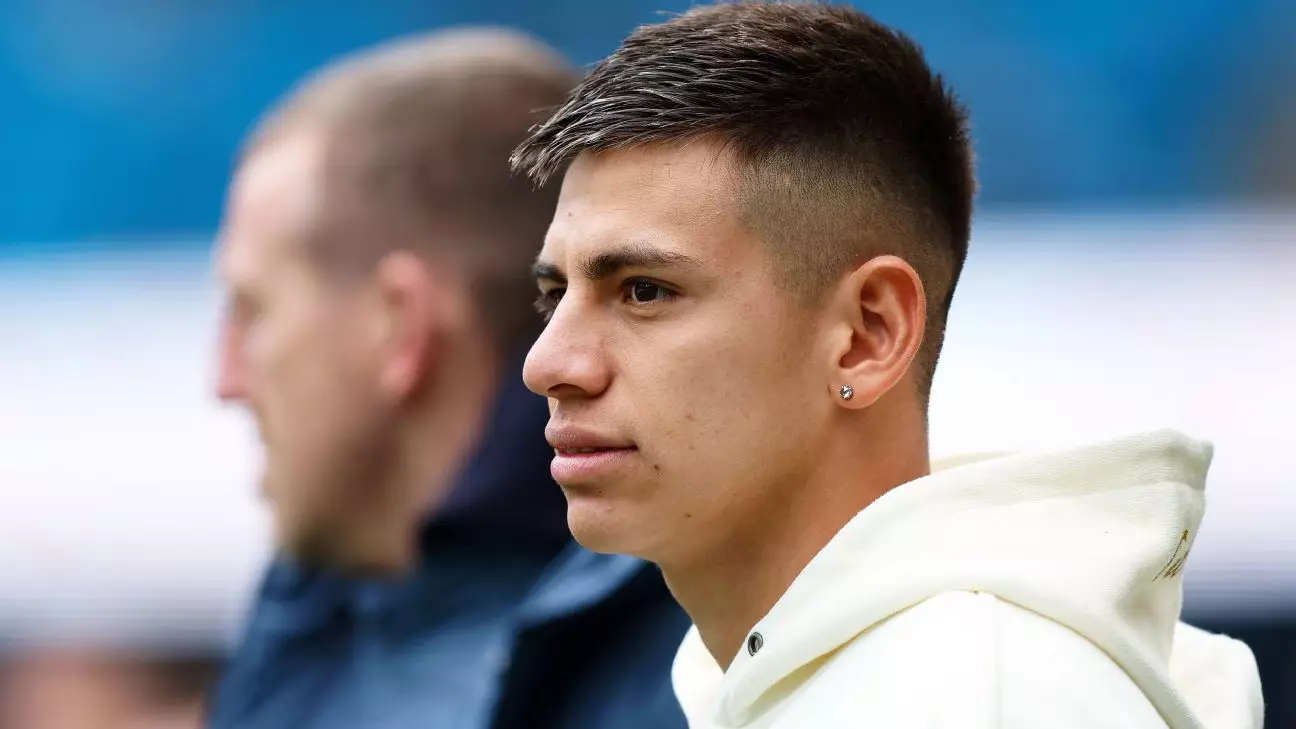Manchester City’s management is poised for a defining moment regarding the future of young talent Claudio Echeverri, who has been a topic of considerable interest since his arrival at the Etihad Stadium earlier this year. The Argentine youth international, only 19 years old, made headlines when he transitioned from River Plate to City, a move finalized earlier this January. However, with no matchday appearances yet for the first team, the anticipation surrounding his development is building. Reports suggest that City intends to delay making any concrete decisions about Echeverri until the end of the season, a choice that reflects a measured approach to youth development.
This approach is indicative of the club’s larger strategy—having a clear plan for talent progression rather than rushing players into the first team amidst high expectations. By the summer, City will have a full evaluation of Echeverri’s performance during training alongside Pep Guardiola’s squad, allowing them to decide whether he should be integrated into the fold or possibly sent out on loan for further experience. Several clubs are already expressing interest, notably Girona and Lazio, indicating that Echeverri’s abilities have not gone unnoticed.
The McAtee Dilemma: A Balancing Act
Shifting the focus to James McAtee, another promising player at Manchester City, highlights the complexities of nurturing talent amidst the high stakes of competitive football. McAtee has had a frustrating season, largely relegated to a supporting role with limited opportunities, having started just five matches. Discussions with Guardiola are imminent to determine his participation in two potential events: the FIFA Club World Cup or the Under-21 European Championship.
This internal conflict showcases a broader issue within clubs that boast deep rosters. The choice between international duty and playing at a prestigious tournament can be daunting for young players trying to carve out their identity in the sport. While McAtee has made a mark on the international scene with impressive goal contributions for the Under-21s, including a recent strike against France, he faces the challenge of breaking into a first-team role that may seem increasingly elusive.
Youth Development in the Spotlight
Both Echeverri and McAtee’s situations underline a vital discussion about youth development within elite football clubs. The investments made by Manchester City in young talent are massive, not just financially but also in terms of the club’s identity moving forward. The decision to allow young players to gain experience, possibly through loans, reflects a keen understanding that maturation in football rarely happens overnight.
Moreover, with the impending FIFA Club World Cup approaching, the balance between nurturing this young talent and fielding a competitive squad becomes streamlined under Guardiola’s vision. Manchester City aims to bring the strongest possible team to the U.S. to ensure a successful tournament run. However, this ambition must align with the growth pathways of their younger stars, allowing them to mature and adapt in a system that demands excellence. As such, the dynamics between the club’s ambitions and its youth players’ development will shape the narrative of City’s future.

Leave a Reply